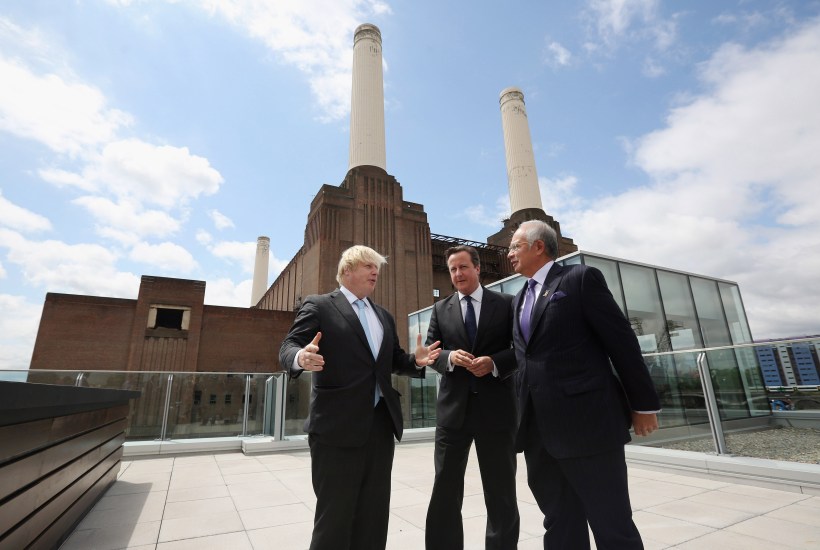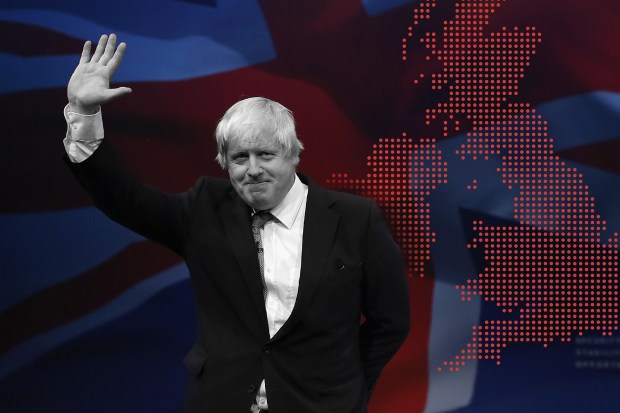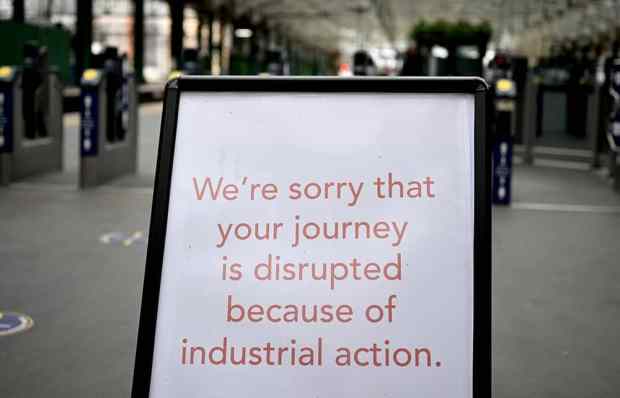‘Does anyone seriously doubt that this amazing scheme is actually going to go ahead?’ boomed Boris Johnson last week. ‘No is the answer!’ He was waxing rhetorical about the redevelopment of Battersea Power Station, the fourth such scheme since the landmark hulk’s turbines were switched off in 1975. The Malaysian consortium behind this £8 million gamble are ignoring both the site’s troubled history and my own advice — which was to lose the shopping mall plans and start digging for minerals — by going for a full-blown residential-retail-office complex that’s a sure sign of economic optimism, underpinned by mayoral enthusiasm.
But knowing Boris’s modus operandi, it won’t surprise me if he tells us, when a fifth scheme comes onto the drawing board in a decade’s time, that the Malaysian investors misinterpreted his Latinate grammar. It wasn’t a nonne but a num, as it were, or possibly vice versa: ‘No’ was not the answer to ‘Does anyone seriously doubt…’ but to ‘Is this amazing scheme actually going ahead?’ And that also seems to be his position on HS2, the much-disputed fast rail link to Birmingham and beyond.
In the guise of accusing the fellow mischief-maker he calls ‘Mandychops’ of doing the bidding of Whitehall ‘fainthearts’ by the revelation that Labour’s green light for the scheme was a political gimmick with no real ‘business case’, and lamenting the bureaucracy that hinders all British infrastructure projects, and expressing ‘a general principle’ of support for ‘faster connections’, Boris inserted in his latest Telegraph column the killer phrase ‘£70 billion, and then keep going’.
Where it came from no one knows. But it’s his figure for the real cost of HS2, it’s £27 billion more than the current official estimate, and it will be bandied about for ever more by opponents of big state spending projects as well as by Buckinghamshire nimbyists. Combined with the Mandelson-ian hand grenade, Johnson’s double-edged intervention nudges the great 21st–century railway plan that little bit closer to the Downing Street shredder. Perhaps he wants the Treasury to focus its firepower on Crossrail 2 instead, or perhaps he’s spotted a safe seat along the route that’s about to come vacant. Either way, the Pimm’s toast at Chiltern fetes this summer will be Boris and Mandychops.
Double agent
I’ve been studying Unite leader ‘Red Len’ McCluskey’s career closely ever since I described the British Airways cabin crew strike of March 2010, of which he was the chief instigator, as ‘catastrophic for Labour’s election prospects’. And I’ve concluded that he’s not what he seems.
He’s been on the wrong side of history since he emerged as a teenage shop steward in the doomed Liverpool docks of the 1960s: ‘I led lots of strikes,’ he ‘recalled fondly’ in an interview for the Liverpool Echo at the time of the BA dispute. As an up-and-coming Transport & General Workers Union official in the mid-1980s, he supported Derek Hatton’s Militant Tendency during its reign on Liverpool city council — a pantomime of loony-left local government, television images of which did much to boost domestic support for Margaret Thatcher. ‘On the chief issues they were right,’ he says defiantly, but he denies becoming a member of Militant, choosing to stay in the Labour party, which he joined in 1970 and has been undermining ever since.
Then last year he embarrassed the Labour leadership by declaring the London Olympics a ‘legitimate target’ for protests against cuts in public sector jobs. Now he’s urging Ed Miliband to ‘step back from the brink of a ruinous division’ in the row over the selection of a Labour candidate for Falkirk, which Unite tried to fix for one of its own — but ruinous division is clearly what Len’s out to foment, and that makes him (in a not very competitive field these days) the Conservative party’s best friend. They should send him a secret medal.
Shoulder to shoulder
Remarkably, many fellow union leaders have yet to spot McCluskey’s subversive role. Billy Hayes of the Communication Workers Union is one who says he’s ready to stand shoulder to shoulder with Len against Miliband’s ‘attack on the trade union movement’. No doubt Len will play it to the hilt by raging in sympathy with CWU members against the forthcoming privatisation of Royal Mail — thereby reminding voters that the chief obstacle to modernisation, and the chief reason why postal services became more expensive and less satisfactory over the 20 years since privatisation was first mooted, has been the intransigence of its unionised workforce.
The decision by business minister Michael Fallon to go for an offer of Royal Mail shares to the public within the next year is as bold an indication of the improving economic mood as the arrival of the first JCB at Battersea Power Station. It’s also politically expedient, since it appears to rule out the more controversial options of a sale to a foreign postal operator or worse, an asset-stripping deal with the private equity sector. But the union — which has just voted 96 per cent against a three-year pay offer that failed to offer sufficient job protection in the event of a sell-off, and has been flexing its muscles with a wildcat strike at the Peterborough sorting office — will fight the Fallon plan at every turn.
‘A strike is certain,’ says Hayes, as the appointment of Goldman Sachs, UBS and Barclays to advise on the sale added fat-cat fuel to flames already stoked by rumours of Royal Mail chief Moya Greene’s £1.6 million pay package for last year, up £500,000 on 2011. And of course every time there’s a disruption between now and the share offer, rivals such as Dutch-owned TNT Post will make inroads into Royal Mail territory and revenues. So here’s another amazing scheme that may or may not actually be going ahead. ‘No is the answer!’ cry Billy and his men: stand by for a winter of postal discontent.
Got something to add? Join the discussion and comment below.
Get 10 issues for just $10
Subscribe to The Spectator Australia today for the next 10 magazine issues, plus full online access, for just $10.
You might disagree with half of it, but you’ll enjoy reading all of it. Try your first month for free, then just $2 a week for the remainder of your first year.















Comments
Don't miss out
Join the conversation with other Spectator Australia readers. Subscribe to leave a comment.
SUBSCRIBEAlready a subscriber? Log in